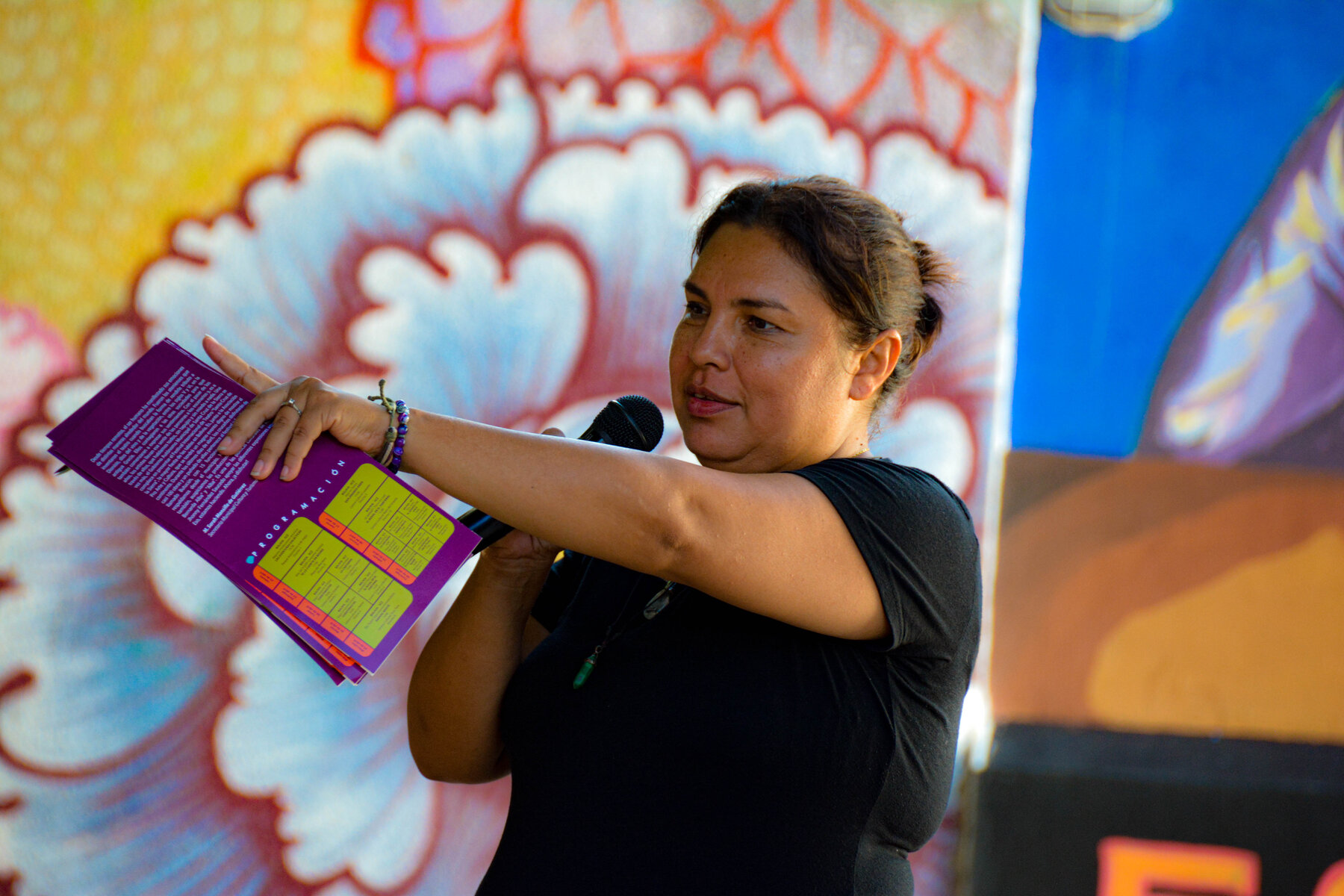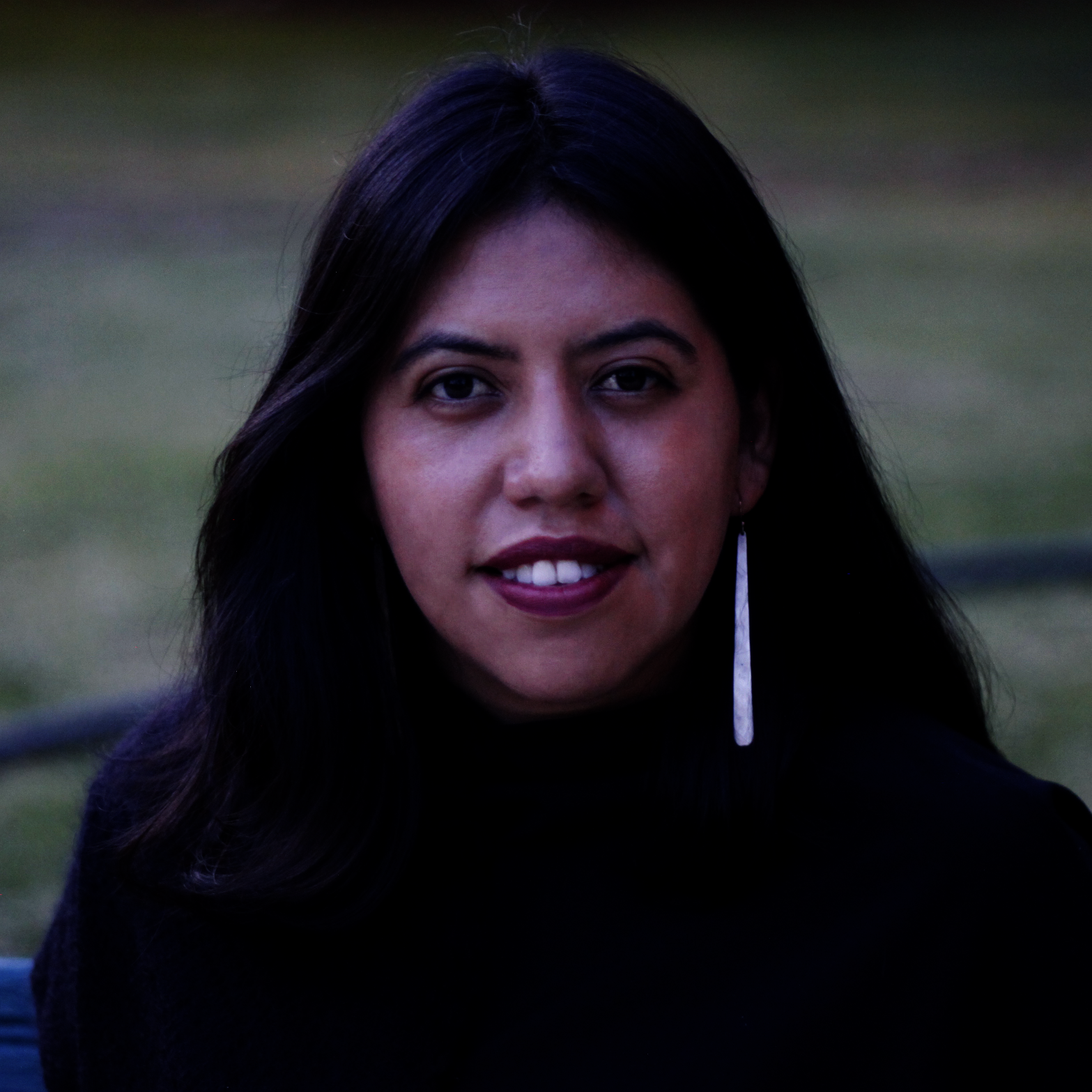Bolivian Women Take Center Stage
Emi Chavez Ríos is breaking down gender barriers in Bolivia’s theatre world by becoming the first female president of Santa Cruz’s actors’ union.
In a modest backyard in the Bolivian town of Buena Vista, an improvised stage unfolds with a wooden chair beside a table filled with various objects: a cup of coffee, tarot cards, a jar of salt, colourful stones and crystals, old books, photos, and writings. Here, Emi Chávez Ríos embodies Cassandra. Barefoot, she advances gracefully dressed in an elegant black blouse and a flowing turquoise skirt. As she speaks, her gaze seems to capture time between past and present, while her soft but firm voice exposes the complexities of women's destinies in society.
"What is my social status or reputation? What is my place in the world? What must I achieve?" She picks up a photo, looks at it, and says, "Blood makes family. No! Family is made by shared tears. Blood. Tears. Women, a sea of blood."
Chavez Ríos has played the role of Cassandra many times. Now the accomplished actress is becoming something of a mythical figure herself. She has recently become the first female president of Asadcruz, the Association of Actors and Actresses of Santa Cruz, the body that represents the rights of those working in the theatre profession in Bolivia’s largest city. The union currently has 113 male and female members. Elected this year along with an all-female board of five members, she aims to tackle inequalities and challenge the traditional male dominance of the Bolivian theatre scene.


Her achievement is ground-breaking. “Leadership roles in Bolivian theatre have long been the preserve of men, with women consigned to decorative roles as actresses and support staff,” says the 49-year-old, who has short, wavy dark hair, over coffee in downtown Santa Cruz. “Most women have received unequal pay and poorer working conditions.” Chavez Ríos aims to change that, but she knows the task is not easy. “Women in the theatre world face constant scrutiny, especially when they become leaders. People criticize constantly, which causes women to question their abilities.”
In Bolivia, women aspiring to positions of power encounter deep-seated gender biases. According to the Gender Research Hub of the Women's Coordination Network (WCG), women in leadership roles often face disapproval for neglecting domestic or wifely responsibilities, reinforcing stereotypes that men should be in charge. In the theatre world, many women not only work as artists but also juggle additional jobs and assume domestic and caregiving roles, a triple burden that greatly affects their ability to succeed.
Born in Santa Cruz de la Sierra, Chavez Ríos has dedicated her life to being a theatre actress, dramaturgist, and director. She has directly faced sexism many times on her rise to the top. “Machismo in the theatre is subtle but as sharp as a scalpel. Many men have complimented my work and in the same breath suggested that my husband played a big part in helping me,” she says, rolling her eyes.
Her journey in theatre began by chance at age 18 during a neighbourhood workshop when a neighbour spotted her potential. Despite her initial shyness, acting became her passion, leading her to balance daytime jobs, such as washing bottles at a biochemical company, with nighttime theatre studies. What started as a casual interest evolved into her life's calling. Raised in a working-class family, Chavez Rios remembers her mother teaching her to bake bread as insurance against the precarious life of being a female artist: “Baking bread is a skill you can use to survive if things go wrong,” her mother told her.

Before the Asadcruz elections in 2024, Chavez Rios was invited to join the existing board members in their bid to be re-elected. The board of four men hoped to replace the only female member, who had resigned. She rejected the offer because she believed it was blatant tokenism. This common tactic, known as "shared management," according to the WCG, involves inviting women to participate during an election but ultimately edging them out once in power, a practice that contributes to the marginalization of women in political positions.
She took a gamble on running for election independently and it paid off. Her choice to form an all-women team for the board of Asadcruz was a deliberate act of female empowerment and solidarity. She sought not just equal representation but also to take advantage of the energy and skills she saw in the female artists around her. “I wanted a team of hardworking people. I said they must be women, because most women I know commit to something and follow through,” Chavez Ríos says. The work on the board is unpaid but Chavez Ríos believes it’s worth it. 'This role is very important to me because it can help to transform the lives of artists and give us the rights and rewards we deserve.”
In Bolivia, artistic professions are poorly paid, with many artists earning less than the minimum monthly wage of $340. One of Chavez Ríos’s goals is to advocate for artists' labour rights to narrow these gaps. “Considering my needs as an artist and what I've had to do to survive, I feel that if we don't take action now we could be fighting this battle forever,” she says.
She also wants to create safe spaces for female artists to prevent sexual exploitation and abuses of male power. She recalls a time she was asked to pose naked for a male painter during one theatre production, and how vulnerable and at risk it made her feel. “I learned a lot from my own experiences and I am determined to end such unacceptable behaviour,” she says.
Since the beginning of their term in January of this year, Chavez Rios and her board have worked to transform the association and ensure transparency. Defying the sceptics who doubt the efficacy of an all-women board, she says: “We are occupying spaces that were previously inaccessible to women and we intend to make the most of it.” More than an organization, Asadcruz is an essential platform in the fight for fundamental rights, she adds. “We are challenging the status quo, promoting inclusivity and diversity, and paving the way for greater gender equity in the arts.”



